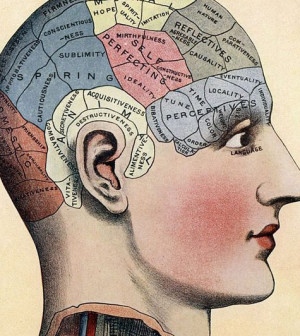- Could Your Grocery Store Meat Be Causing Recurring UTIs?
- Are You Making This Expensive Thermostat Error This Winter?
- Recognizing the Signs of Hypothyroidism
- 10 Strategies to Overcome Insomnia
- Could Artificial Sweeteners Be Aging the Brain Faster?
- Techniques for Soothing Your Nervous System
- Does the Water in Your House Smell Funny? Here’s Why
- Can a Daily Dose of Apple Cider Vinegar Actually Aid Weight Loss?
- 6 Health Beverages That Can Actually Spike Your Blood Sugar
- Treatment Options for Social Anxiety Disorder
Study Explores Electrical Brain Stimulation to Treat Bulimia

Electrical stimulation of the brain may temporarily ease the symptoms of the eating disorder bulimia nervosa, a small study suggests.
The study included two men and 37 women with bulimia who underwent 20-minute sessions of transcranial direct current stimulation to an area of the brain involved with reward processing and self-regulation. There was also one sham session where the electrode stimulation lasted only 30 seconds.
Participants then reported their desire to binge eat, fear of weight gain, general mood and frequency of bulimic behaviors in the 24 hours following treatment, the researchers said.
The patients reported a reduction in bulimia symptoms after brain stimulation. The findings were published online Jan. 25 in the journal PLOS One.
“Although these are modest, early findings, there is a clear improvement in symptoms and decision-making abilities following just one session of [brain stimulation],” said study author Maria Kekic, from King’s College London.
“With a larger sample and multiple sessions of treatment over a longer period of time, it is likely that the effects would be even stronger,” Kekic added. “This is something we’re now looking to explore in future studies,” she said in a journal news release.
However, the study did not prove that brain stimulation caused bulimia symptoms to subside; it only showed an association.
Common symptoms of bulimia include binge-eating (often large amounts of high-calorie foods, usually in secret), followed by purging to prevent weight gain. Purging may include: forcing oneself to vomit; excessive exercise; or using laxatives or diuretics (water pills).
Cognitive behavioral therapy — a type of talk therapy — is the gold standard for bulimia treatment, but as many as half of patients who undergo it relapse into their eating disorders, the study authors said.
More information
The U.S. National Institute on Mental Health has more about eating disorders.
Source: HealthDay
Copyright © 2026 HealthDay. All rights reserved.










